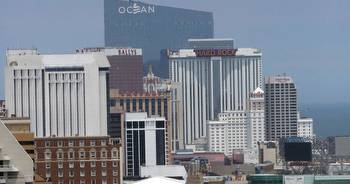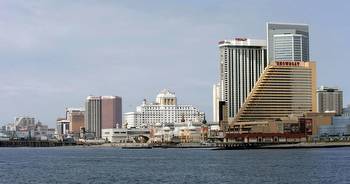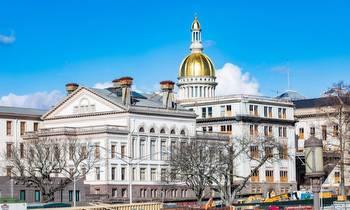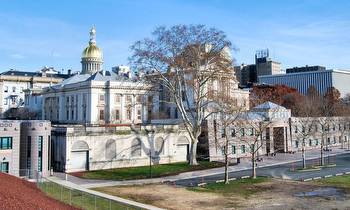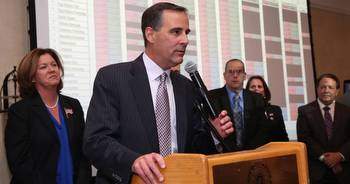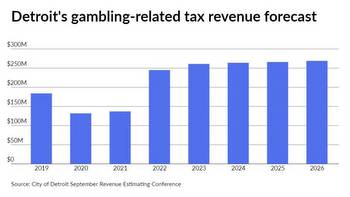Atlantic City’s future beyond the casino PILOT, by Don Guardian

In December, I went to Trenton to testify against the recent rewrite of the casino PILOT. I did this because I believed then what I still believe now: the changes hurt Atlantic County taxpayers. Just how bad of a bruising this will be now hinges on the result of the county’s lawsuit.
But the PILOT is just one piece of the puzzle as to how Atlantic City and the area stay afloat.
Seven years ago, Atlantic City had $600 million in debt and teetered on the brink of bankruptcy. As the mayor facing this fiscal cliff, we argued to Trenton that the city wasn’t receiving anywhere near its fair share of the tax revenue it generated. Beyond the PILOT, we fought for and won new funding sources from the ACA, IAT, TA and CMPTRA.
To explain: ACA is direct casino payments to the city. IAT is casino money going to pay down the city’s debt. TA is temporary state funding to assist municipalities through fiscal crises. CMPTRA is state funding to urban communities to prevent bankruptcy. In 2021, Atlantic City received from the ACA $5 million, from the IAT $22.5 million, from the TA $7.7 million, from the CMPTRA $26.1 million, from taxes $43.8 million, and from the PILOT $66.7 million. That’s a total of $171.9 million in 2021 alone.
Every year, roughly $65 million was brought into the city through this alphabet soup of programs. Every major project during my time as mayor like Bass Pro Shops, Boardwalk reconstruction, Pacific Avenue repaving, SJI headquarters, 600 NoBe, and Stockton’s Atlantic City Campus was financed in part by these programs. And just like the PILOT, these programs could end soon. But unlike the PILOT, legislation won’t be needed to end them. They can vanish with the stroke of a pen.
The PILOT as we knew it is gone, which puts me on high alert about these other programs leaving town with it. Although I believe Atlantic City deserves to keep more of its tax revenue, it’s clear that in the coming years we stand to lose what little we get back from Trenton.
What would the referendum voters of 1976 think about where we are now? Back then, gambling was meant to provide a “unique tool of urban redevelopment” that would restore “Atlantic City as the Playground of the World and the major hospitality center of the Eastern United States.”
Forty-four years and tens of billions in tax revenue later, we’re still waiting.
Not because the vision was unfounded. Travel 2,500 miles west and you’ll find Las Vegas residents proving it is possible. In their state, taxes from casinos are wisely reinvested in the form of tax relief that zeroes out an income tax and supplements some of the lowest property taxes in the nation. Some things happening in Vegas really shouldn’t just stay there.
The casinos for their part have held up their end of the bargain. Since the beginning, the gaming industry has propped up South Jersey, providing good-paying jobs that have anchored thousands of families in Atlantic County.
But the state? Not even close. It’s been smoke and mirrors for a while now.
Let’s look at the most recent example: During his testimony in defense of the PILOT rewrite, former Senate President Steve Sweeney swore that continuing to tax internet gaming and sports betting as part of the PILOT’s definition of gross gaming revenue would put four casinos out of business.
This re-definition directly affects the county, city and city school district going forward. What he failed to mention is the state will keep using the old dictionary.
Separate and aside from the PILOT, Trenton took in $244 million last year in tax revenue on Atlantic City-based internet gaming and sports betting. Unimpeded the state will keep using the old definition to its benefit.
Rules for thee, but not for me.
Meanwhile, casinos face unprecedented competition and a stunted recovery from the pandemic. More than ever, the state taxes they generate must be reinvested here to keep this revenue source and the main engine of the local economy alive.
It’s why I’ve co-sponsored Assembly Bill 646 with my colleagues in Cape May County to reinvest 100% of tourism tax dollars back into the tourism industry.
It’s time to admit Trenton has a spending problem. They’ve taken $14 billion in taxes and fees from casinos since 1978 and squandered it. They’ve done this compulsively at the expense of projects that would have sustained the social and infrastructure needs of the area. What’s needed now is an intervention.
Don Guardian, of Atlantic City, is a Republican representing the Second District (most of Atlantic County) in the New Jersey Assembly.








